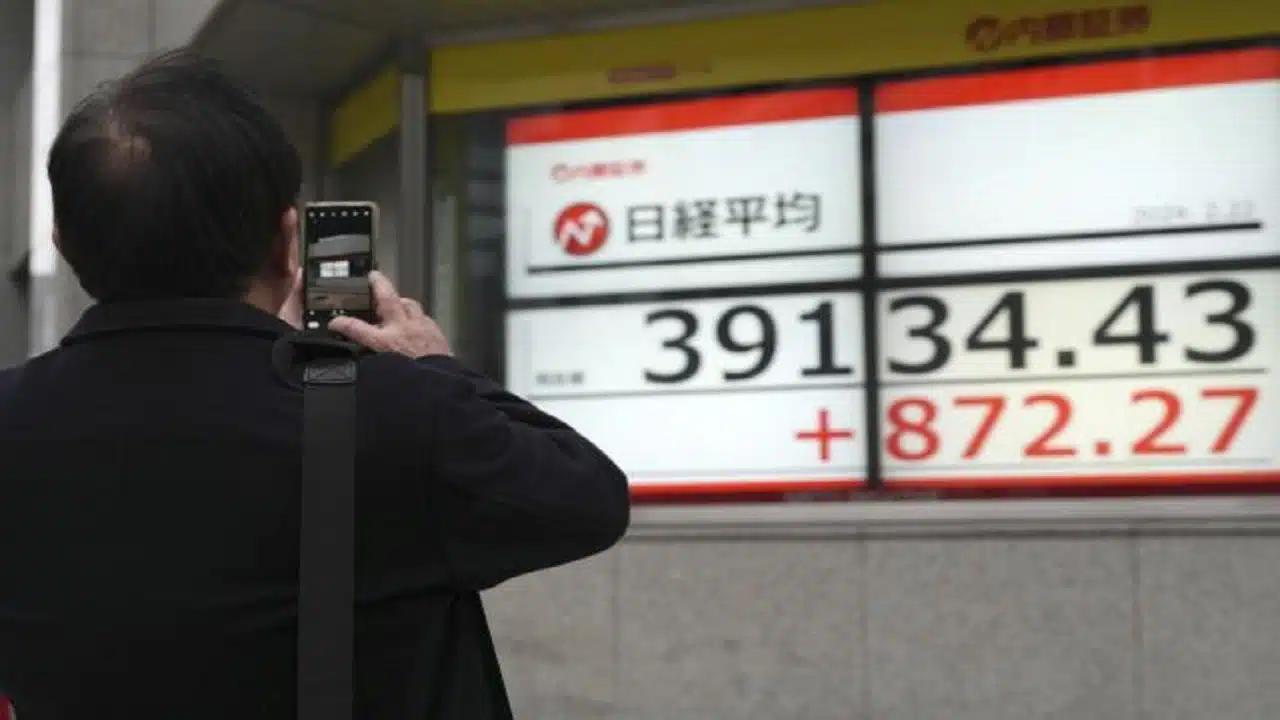Japan’s benchmark Nikkei 225 index recently achieved a significant milestone by surpassing its record high set in 1989, a time when the country was experiencing a financial bubble. The index closed at 39,098.68, up 2.2% from its previous record of 38,915.87, set on December 29, 1989. This achievement marks a full circle for the Nikkei 225, returning to its peak after a 34-year hiatus, a period that saw Japan’s economy transition from the height of its post-war boom to decades of faltering growth and recession.
The journey of the Nikkei 225 since its 1989 peak has been tumultuous. After the bubble burst, Japan’s economy entered a prolonged period of stagnation, with banks writing off approximately 100 trillion yen in bad debts. The stock market suffered significantly, with share prices dipping below 7,000 at their lowest point. However, a series of market-boosting measures, particularly those championed by the late Prime Minister Shinzo Abe in 2013, began to gradually push the market upwards.
The recent surge in the Nikkei 225 has been attributed to a combination of factors, including strong interest from foreign investors, heavy buying of computer chip-related shares following Nvidia’s announcement of a significant revenue increase, and Japan’s continued easy money policies aimed at spurring inflation and growth. Unlike the United States, where the Federal Reserve is considering cutting high interest rates, Japan’s benchmark rate has remained at minus 0.1% for over a decade.
Additionally, global investors have been diversifying their portfolios away from China due to its slowing economy and increasing tensions with Washington, making Japanese shares more attractive. This shift has contributed to a 15% rise in share prices in Tokyo over the past three months and a 44% increase in the past year. In contrast, markets in Shanghai and Hong Kong have experienced declines.
Also Read: From Hotel Guest to Building Owner: NYC Man’s 5-Year ‘Free Stay’ Saga Ends with a Twist
The improved appeal of Japanese shares can also be attributed to record gains in corporate earnings, enhanced corporate governance, and changes in investor demographics. Younger investors, less affected by the trauma of the early 1990s bubble burst, are showing more willingness to invest in shares. Changes to the Nippon Individual Savings Account program, offering tax-free gains, have further encouraged investment in the stock market.
The Government Pension Investment Fund, one of the world’s largest institutional investors, has increased its stock investments, contributing to higher prices. Foreign investors, attracted by the yen’s weakness against the U.S. dollar, have also significantly invested in Japanese stocks.
Also Read: Taiwan’s Defense Ministry Stands Firm: Navigating Rising Tensions with China
Despite the current optimism, the market scenario is markedly different from the euphoria of 1989. At that time, seven of the world’s top 10 companies by market value were Japanese; today, none are. Much of the improvement in Japanese companies’ profitability is attributed to their overseas earnings, which account for more than 40% of their income.
The Nikkei’s recent record is a testament to the resilience and gradual recovery of Japan’s stock market. However, it also highlights the significant changes in the global economic landscape and the evolving nature of Japan’s economy. While the stock market’s performance is encouraging, it is not a direct reflection of the overall economy, which continues to face challenges. The path ahead for Japan’s economy and its stock market remains uncertain, with various factors influencing its trajectory in a rapidly changing global environment.




